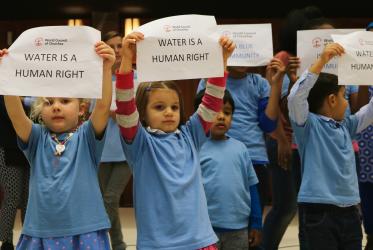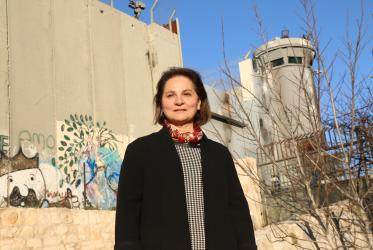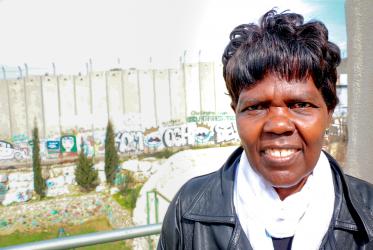Displaying 1 - 20 of 34
Thirsting for peace: Gaza's water woes in the midst of war
31 January 2024
Water as a divine gift, and justice issue
08 September 2022
Joining Blue Communities, WCC turns from bottles to taps
26 October 2016
WCC joins the Blue Community
25 October 2016
Visser’t Hooft Hall, Ecumenical Center, 150 Route de Ferney, Geneva
World Social Forum sows seed of hope in global north
17 August 2016
Winners of WCC photo contest announced
09 May 2016
Water is a gift, and a right for all, says WCC moderator
14 March 2016











